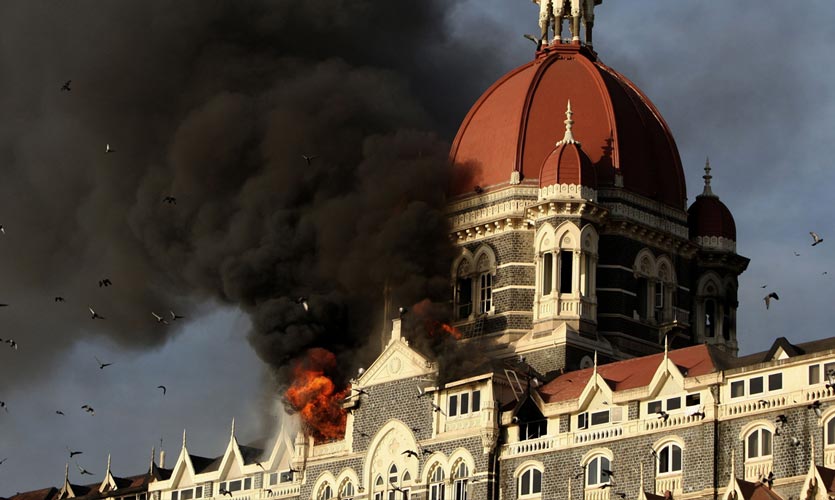An extradition hearing for Tahawwur Rana – a Canadian businessman and an immigrant of Pakistani descent who participated in the 2008 Mumbai terror attacks – was held on Thursday before a federal court in the United States.
Background
On June 10, 2021, Rana was arrested in Los Angeles following a request for extradition from India. Rana is accused of participating in the 2008 Mumbai terrorist attacks which left 166 people dead, including six Americans. Apart from demanding a “top-class” medal for his role in the Mumbai terror attacks, the fugitive had demanded Pakistan’s highest military honour for the nine Lashkar-e-Taiba (LeT) terrorists who died during the carnage.
In his submission to the court in Los Angeles, according to India Today, US attorney Nicola T. Hanna explained that ten members of the LeT executed a series of coordinated shooting and bombing attacks between November 26 and 29, 2008, which culminated in Rana’s extradition to India. In the months following the Mumbai attacks, David Coleman Headley – an American terrorist of Pakistani origin – had talked to Rana about the terrorist attacks. Headley reminded Rana that he had made videos of the various places where attacks had taken place after learning from their Pakistani co-conspirators.
“Referring to a 1971 attack on his school in Pakistan, Headley told Rana that he believed he was ‘even with the Indians now’. In response, Rana said that they [the Indian people] deserved it. Also, in September 2009, the FBI intercepted Rana telling Headley that the nine LeT attackers who had been killed during the attacks should be given Pakistan’s highest military honour,” stated Hanna in his court filing. “When Rana learned that Headley already had conveyed this compliment to their co-conspirator, he was pleased,” added Hanna.
The report also states that in spite of the Mumbai bombings, Rana, Headley, and other members of the LeT, continued their plot. Hanna said Headley used Rana’s company as a cover to conduct surveillance for an intended terror plot in Denmark in 2009, but the plot was foiled. In addition to spying for potential future terrorist attacks in India, Headley also investigated other regions. Headley informed Rana about these surveillance activities, just as he did for his surveillance in Mumbai. Rana allegedly communicated directly with some of Headley’s contacts in Pakistan starting in 2009. On October 3, 2009, Headley was arrested in Chicago. The next year, Headley made 12 pleas related to his actions on behalf of LeT and entered into a cooperation agreement with the federal authorities. After a long trial, the Illinois Court sentenced Headley to a 35-year term of imprisonment.
In the days leading up to Thursday’s hearing, a delegation from India arrived in the US. A number of submissions have been made before the court by the United States government in support of the “United States’ Surrebuttal in Support of its Request for Certification of Extradition.” In an earlier statement, the US government said that Rana’s argument holds no water since the Indian substantive charges are not considered lesser included crimes of their conspiracy charges. The Tribune stated that the Indian government requested the formal extradition of Rana in accordance with the India-US Extradition Treaty, and the US has begun the extradition proceedings on his behalf. Rana is believed to meet all the requirements for his extradition to India, according to the US government.
Read more: UP Forced Conversion Racket: Disabled Children Brainwashed To Become Human Bombs
Thursday’s Proceedings
Attorneys for the defence and the prosecutors were instructed to submit extra documentation by July 15, by Magistrate Judge Jacqueline Chooljian. There will be no change to Rana’s federal custody status.
Rana’s attorneys, on Thursday, asserted that he had no knowledge of Headley’s terrorism plot and that he was only helping set up a Mumbai business office for his childhood friend. They also said Headley’s testimony should not be taken seriously because he has repeatedly lied to the US government in several criminal cases. According to the attorneys, Rana had been used by Headley for terrorism purposes without the former’s knowledge. US prosecutors failed to demonstrate that Rana was directly involved in the Mumbai attacks. As Rana’s lawyers cite in court papers, extraditing him to India would be like doling double punishment since he has been acquitted of all charges related to the Mumbai terrorist attacks in the US.
According to Mint, Rana’s attorney argued in his prior submission to the court on February 4 that extradition of Rana is barred under the India-US Extradition Treaty’s Article 6 because he had previously been acquitted of the offences for which his extradition is sought, and under Article 9 because the government has not established probable cause to believe that Rana committed the alleged offences.










